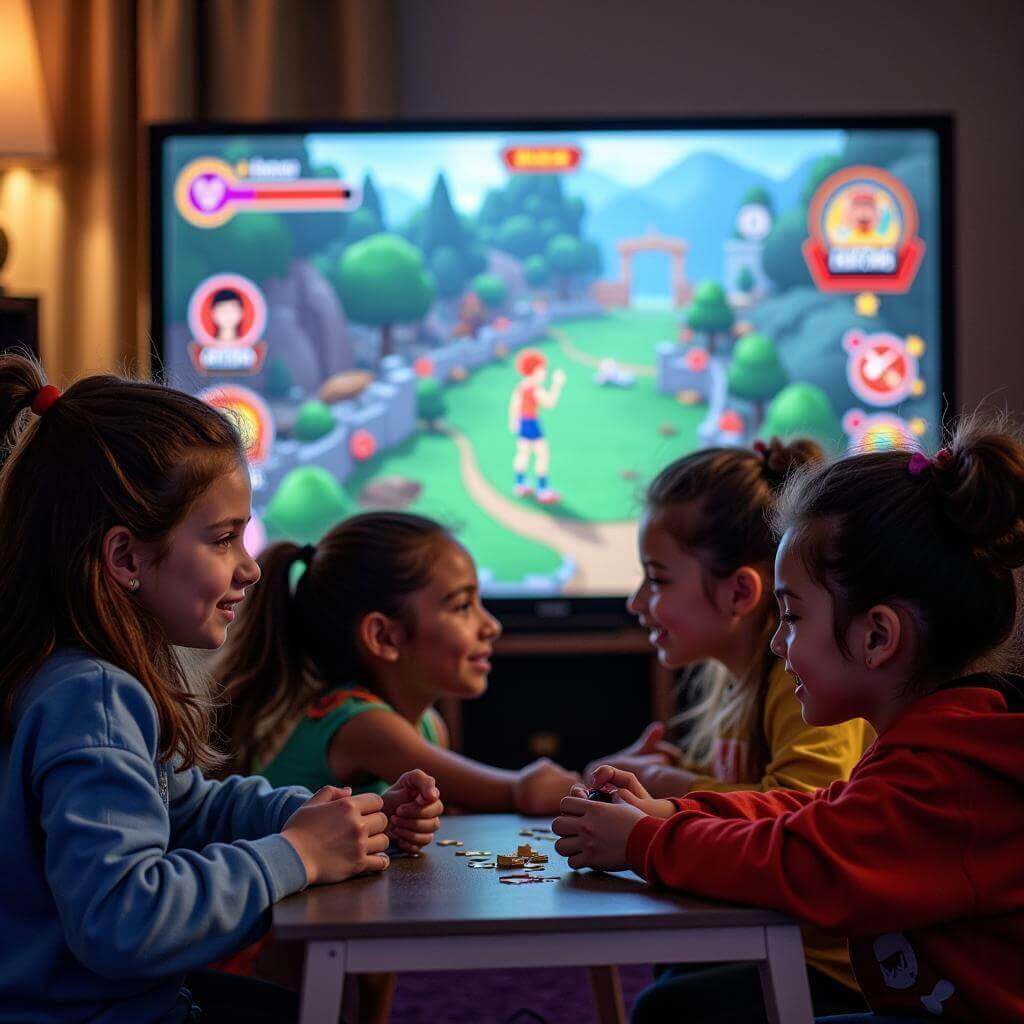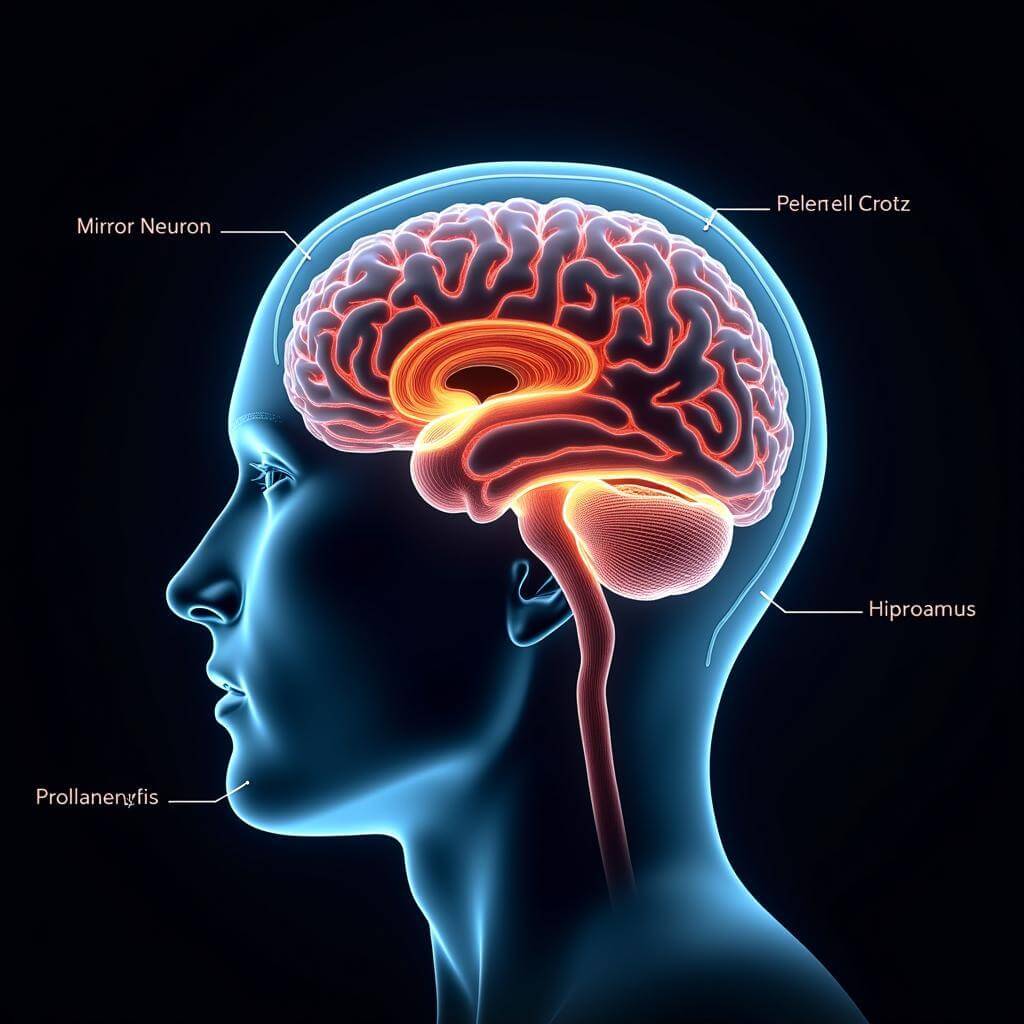Passage 1: The Rise of Social Gaming
In recent years, video games have evolved far beyond simple entertainment. They are now being recognized as powerful tools for education and personal development, particularly in the realm of social skills. This shift has caught the attention of educators, psychologists, and parents alike, all seeking innovative ways to engage young learners in social development.
The influence of technology on early childhood education has been significant, with video games playing an increasingly prominent role. These digital platforms offer unique opportunities for children to interact, collaborate, and develop crucial social competencies in a controlled and engaging environment.
Many modern video games are designed with multiplayer components that necessitate cooperation and foster communication between players. These games often require players to work together towards common goals, share resources, and strategize as a team. Such interactions can help children develop important social skills like empathy, leadership, and conflict resolution.
 Video games teaching social skills through multiplayer interactions
Video games teaching social skills through multiplayer interactions
Questions 1-5
Do the following statements agree with the information given in the passage? Write
TRUE if the statement agrees with the information
FALSE if the statement contradicts the information
NOT GIVEN if there is no information on this
- Video games are now solely used for entertainment purposes.
- Educators and psychologists are interested in using video games for social skills development.
- All video games require players to work together.
- Multiplayer games can help children develop empathy and leadership skills.
- Parents are unanimous in their support of using video games for education.
Questions 6-10
Complete the sentences below. Choose NO MORE THAN TWO WORDS from the passage for each answer.
- Video games are now seen as __ for education and personal development.
- The use of video games in education has caught the attention of __, psychologists, and parents.
- Many modern video games include __ components.
- Multiplayer games often require players to work towards __.
- Playing cooperative games can help develop skills in empathy, leadership, and __.
Passage 2: Social Skills in the Digital Age
The digital age has brought about significant changes in how we interact and communicate. As face-to-face interactions become less frequent, particularly among younger generations, there is growing concern about the potential impact on social skills development. However, innovative educators and game developers are turning to an unlikely ally in this battle: video games.
Contrary to popular belief, many video games are now being designed with social learning objectives in mind. These games create virtual environments where players can practice social interactions, develop emotional intelligence, and learn to navigate complex social situations. For example, role-playing games (RPGs) often require players to engage in dialogue with non-player characters (NPCs), making choices that affect relationships and storylines. This process can help players develop empathy and perspective-taking skills.
Moreover, multiplayer online games provide a platform for real-time social interaction with peers from around the world. Players must learn to communicate effectively, collaborate on tasks, and resolve conflicts within the game environment. These skills are directly transferable to real-world social situations.
The role of storytelling in preserving cultural knowledge in schools can be complemented by narrative-driven video games that expose players to diverse cultural perspectives and social norms. This exposure can foster cultural sensitivity and broaden social understanding.
Educators are increasingly incorporating game-based learning into their curricula to target specific social skills. For instance, games that require teamwork to solve puzzles or overcome obstacles can help students develop collaboration and communication skills. Similarly, games that simulate social scenarios can provide a safe space for students to practice assertiveness, negotiation, and conflict resolution.
Questions 11-14
Choose the correct letter, A, B, C, or D.
-
According to the passage, what is a concern in the digital age?
A) The overuse of video games
B) The decrease in face-to-face interactions
C) The lack of educational content in video games
D) The cost of developing educational games -
Role-playing games can help players develop:
A) Technical skills
B) Physical abilities
C) Empathy and perspective-taking
D) Mathematical knowledge -
Multiplayer online games provide opportunities for:
A) Solitary play
B) Real-time social interaction
C) Offline communication
D) Individual competition only -
Game-based learning in curricula is used to:
A) Replace traditional teaching methods
B) Entertain students during breaks
C) Target specific social skills
D) Reduce screen time
Questions 15-20
Complete the summary below. Choose NO MORE THAN TWO WORDS from the passage for each answer.
Video games are being used to address concerns about social skills development in the digital age. Many games are now designed with (15) __ objectives, creating virtual environments for practicing social interactions. Role-playing games often require players to engage in (16) __ with NPCs, which can develop empathy. (17) __ games provide platforms for real-time interaction with peers globally, teaching effective communication and collaboration. These games can also expose players to diverse (18) __ and social norms, fostering cultural sensitivity. Educators are incorporating (19) __ into curricula to target specific social skills, such as teamwork and (20) __.
Passage 3: The Neuroscience of Gaming and Social Skills
The intersection of video gaming and social skills development has become a fascinating area of study in neuroscience. Researchers are uncovering compelling evidence that suggests certain types of video games can have a profound impact on the brain regions associated with social cognition and emotional intelligence.
One of the key findings in this field is the activation of the mirror neuron system during gameplay. Mirror neurons, first discovered in primates, fire both when an individual performs an action and when they observe that same action being performed by others. In the context of video games, particularly those with rich character interactions and emotional narratives, players’ mirror neuron systems are engaged as they observe and respond to the emotions and actions of in-game characters. This activation is thought to enhance empathy and emotional understanding.
Furthermore, studies utilizing functional magnetic resonance imaging (fMRI) have shown increased activity in the prefrontal cortex during cooperative gaming sessions. The prefrontal cortex is crucial for executive functions, including social behavior, decision making, and impulse control. The heightened activation in this region during gameplay suggests that cooperative video games may be exercising and potentially strengthening these critical social cognitive skills.
Inclusive digital resources for STEM learners often incorporate gamified elements that not only teach technical concepts but also promote collaborative problem-solving. This approach leverages the neuroplasticity of the brain, potentially creating new neural pathways that support both cognitive and social skill development.
Another intriguing aspect of gaming’s impact on social skills is the role of the hippocampus, a brain region vital for memory formation and spatial navigation. Some research indicates that certain video games, particularly those with complex social narratives and world-building elements, may lead to increased gray matter in the hippocampus. This structural change could potentially enhance a player’s ability to remember and navigate social information and contexts.
It’s important to note that not all video games have equal effects on social skill development. Games that emphasize prosocial behavior, teamwork, and complex character interactions are more likely to yield positive outcomes. Conversely, games that focus solely on competitive or violent content may not offer the same benefits and, in some cases, could potentially have negative effects on social behavior.
 Brain activity visualization during social video game play
Brain activity visualization during social video game play
Questions 21-26
Complete the sentences below. Choose NO MORE THAN THREE WORDS from the passage for each answer.
-
The study of video gaming and social skills development is an area of interest in __.
-
Mirror neurons fire when an individual performs an action and when they __ being performed.
-
Rich character interactions and emotional narratives in games engage the player’s __.
-
Cooperative gaming sessions show increased activity in the __, which is important for executive functions.
-
Some video games may lead to increased __ in the hippocampus.
-
Games that focus on __ are more likely to yield positive outcomes for social skill development.
Questions 27-30
Choose FOUR letters, A-G.
Which FOUR of the following statements are true according to the passage?
A) All video games have the same effect on social skill development.
B) The mirror neuron system is activated during gameplay with rich character interactions.
C) fMRI studies have shown decreased activity in the prefrontal cortex during gaming.
D) The hippocampus plays a role in memory formation and spatial navigation.
E) Competitive and violent games always lead to improved social skills.
F) Increased gray matter in the hippocampus may enhance social information processing.
G) Prosocial behavior in games is less important than graphical quality for skill development.
Questions 31-35
Do the following statements agree with the claims of the writer in the passage? Write
YES if the statement agrees with the claims of the writer
NO if the statement contradicts the claims of the writer
NOT GIVEN if it is impossible to say what the writer thinks about this
- Video games can have a significant impact on brain regions associated with social cognition.
- The activation of mirror neurons during gameplay is identical to their activation in real-life social interactions.
- Cooperative video games may strengthen executive functions related to social behavior.
- All digital resources for STEM learning promote collaborative problem-solving.
- The effects of video games on social skill development are fully understood and conclusive.
Answer Key
Passage 1
- FALSE
- TRUE
- FALSE
- TRUE
- NOT GIVEN
- powerful tools
- educators
- multiplayer
- common goals
- conflict resolution
Passage 2
- B
- C
- B
- C
- social learning
- dialogue
- Multiplayer online
- cultural perspectives
- game-based learning
- communication
Passage 3
- neuroscience
- observe that action
- mirror neuron system
- prefrontal cortex
- gray matter
- prosocial behavior
- B, D, F
- A (FALSE)
- C (FALSE)
- E (FALSE)
- YES
- NOT GIVEN
- YES
- NOT GIVEN
- NO
This IELTS Reading practice test focuses on how video games are being used to teach social skills, exploring various aspects from basic concepts to neuroscientific research. The passages progress in difficulty, mirroring the structure of an actual IELTS Reading test. Remember to practice time management and careful reading to improve your performance in the real exam.
How video games are used to teach cultural history is another fascinating area where digital interactive media intersects with education, further demonstrating the versatility of video games as teaching tools.


